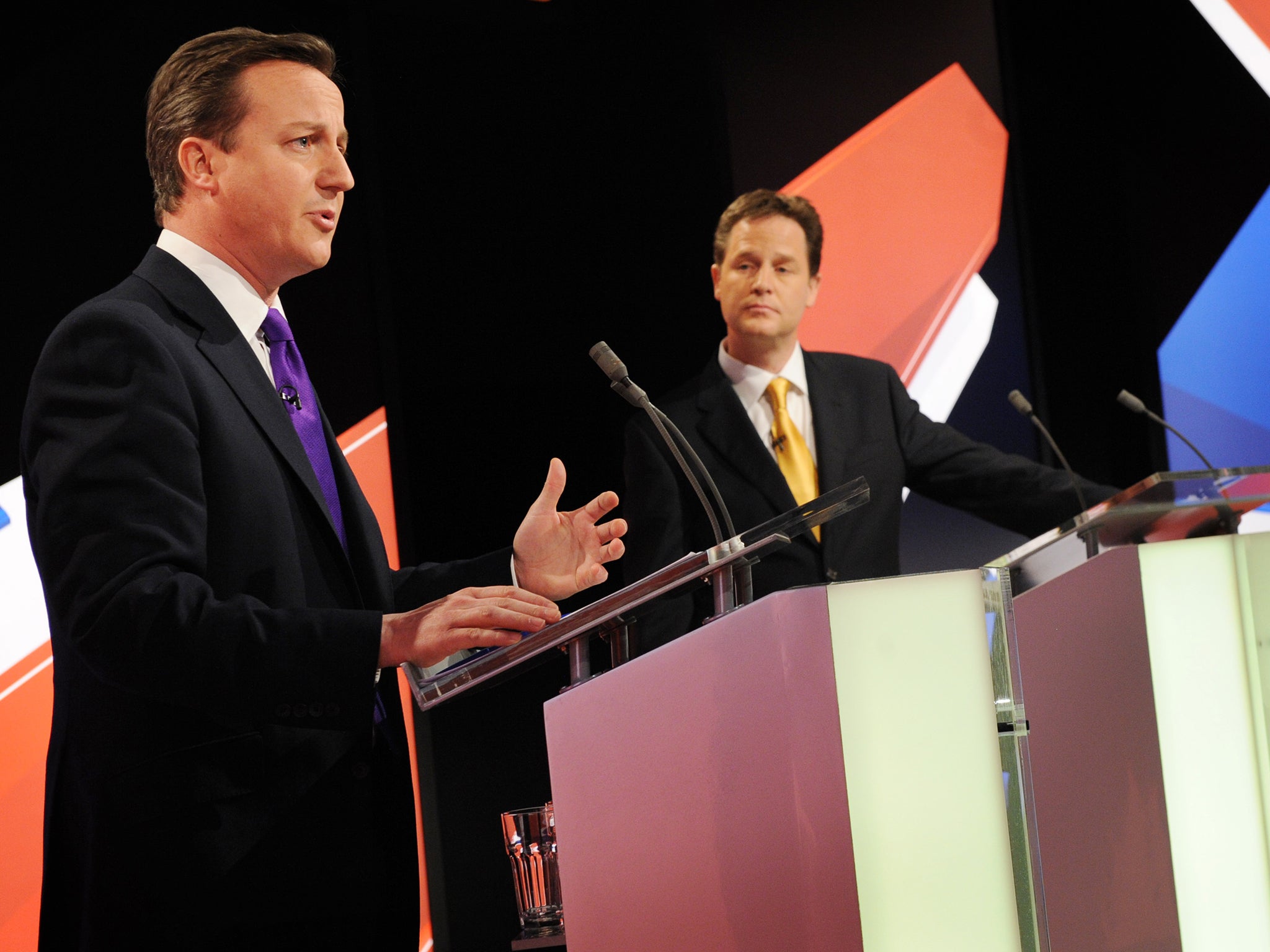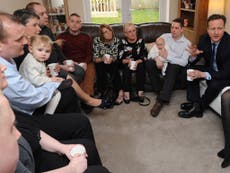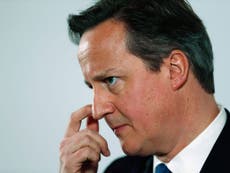David Cameron's attitude to the debates is cynical, ruthless, dishonest. And sensible
Inside Westminster


When Ed Miliband had his first rehearsal for the televised election debates between the party leaders before Christmas, it was not so much a car crash as a multiple pile-up for the Labour leader. I am assured he was ill-prepared and distracted on the day and that his performance has been much better when he and his advisers have “war-gamed” the debates since.
But his bad start is ironic given that David Cameron is doing everything he can to pull the plug on the debates. I doubt that the busy Prime Minister has wasted any time rehearsing for the contests. As readers of this column will know, I never thought they would happen at this election because Cameron judged many months ago that they would not be in his interests.
There will doubtless be more twists and turns. The broadcasters have threatened to go ahead with an “empty chair” representing Cameron. It will be very difficult for them carry it out.
Disingenuously, the Prime Minister blames everyone else – the broadcasters, other parties – for the farcical negotiations. Remarkably, he said on Thursday that he was “unblocking the logjam” by proposing one debate with seven leaders. The truth is that he is the logjam. If he had wanted the debates to happen the format and dates would have been settled long ago. The most predictable twist came when Cameron said that time is running out to get an agreement. That’s what he wanted all along.
The negotiations have been a charade, according to broadcasters. Before Christmas, meetings lasted more than two hours, dominated by bad-tempered exchanges between Craig Oliver, the Downing Street director of communications, and the TV companies, as he raised one objection after another and kept moving the goalposts. When the broadcasters met Cameron’s demand for the Greens to be included, Oliver provoked a collective laugh around the table by suddenly leaping to the defence of Northern Ireland’s Democratic Unionist Party (which is now taking legal action as it seeks to be included, another possible stumbling block).
There was a symbolic moment when the Tories were the only one of seven parties that failed to turn up when the broadcasters drew lots to decide the running order of the debates. Oliver’s chair remained empty.
The Prime Minister has one valid argument. Britain’s first TV debates in 2010 did “suck the life” out of the campaign and meant less scrutiny was given to the parties’ policies. But that was due largely to the novelty factor. I suspect newspapers would be less entranced by debates this year. I know some in my trade who hope the programmes don’t happen so that voters would turn more to the newspapers.
Although I have print ink instead of blood, I don’t share that view. A total of 22 million people watched the three debates between Cameron, Gordon Brown and Nick Clegg. At a time when so many voters have become detached from mainstream parties – not politics – all parties have a duty to engage them.
As one politician argued in 2010, the debates should “go some way to restore some of the faith and some of the trust into our politics”. Yes, it was Cameron. He also said: “They even happen in Mongolia, for heaven’s sake, and it’s part of the modern age we should be in.” Later he added: “I think these debates are here to stay. They clearly engage people in politics, which is what we need.”
What a difference five years in power makes. The Cameron inner circle made a crude calculation: the Prime Minister had everything to lose from having debates, while Ed Miliband had everything to gain. The Tories’ nightmare scenario was that Miliband would look much better than the “weak and weird” image they and their newspaper allies have painted. Far better to have a row about dodging debates before the campaign that few voters would notice or care about, and then get back to business as usual, with the Tory-dominated press doing the party’s dirty work for it. And, incredibly, back to fighting a presidential campaign that portrays the election as “a choice of two prime ministers” but without giving the voters a chance to see them go head-to-head. Enough said.
Labour is not whiter than white. Tony Blair dodged debates in 1997 and 2001 because he was ahead in the opinion polls. In 2001, he had no desire to give William Hague a chance to change the “baseball cap” image the voters settled on early in his leadership, the same problem facing Miliband today.
We should hardly be surprised when politicians act out of self-interest. Yet sometimes they should be forced to act for the public good and this is such a moment. The debates happened in 2010 and people would be more likely to vote if they took place this year.
“The public deserve these debates; the PM should take part,” one Tory cabinet minister says. Labour believes a real prospect of an “empty chair” would force Cameron to turn up because the image would be so damaging.
I doubt Cameron will change his mind. Another reason why is that the Tory high command is confident their party will have the most seats after the election. They believe the improving economic figures and the “forced Cameron/Miliband choice” will bring them a crucial advance of three or four percentage points, while they cannot see how Labour can push on from here.
Cameron’s approach to the debates is utterly cynical, ruthless, dishonest and wrong in an era when politicians need to build, not break, bridges with the public. But it might help him retain the keys to No 10.




Join our commenting forum
Join thought-provoking conversations, follow other Independent readers and see their replies